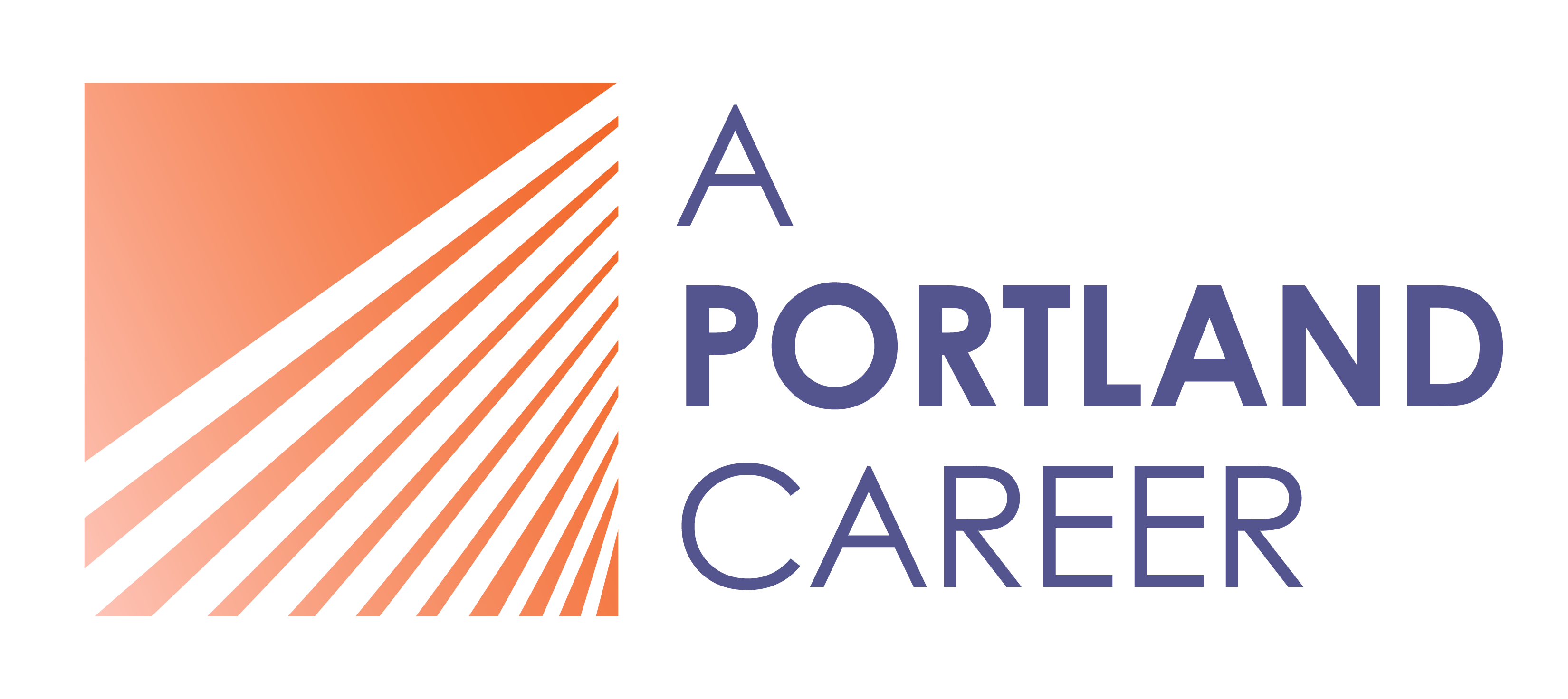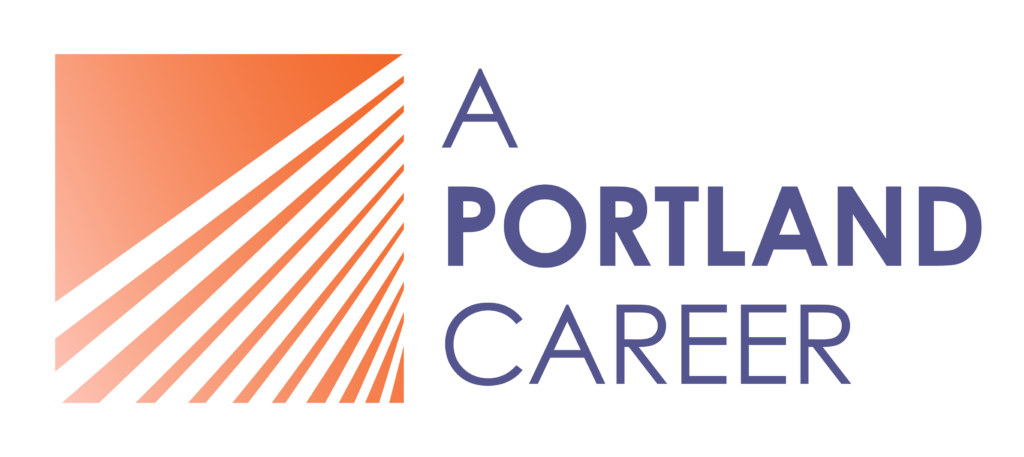Kickstart your career exploration with some strategic volunteering in fields that align with your values and interests!
Education and certification costs are absurd! Here are 5 great ways to finance your education so you can move forward in your career.
How to Get the Education You Need to Further Your Career
By A Portland Career, and edited by Jelena Grove, Dan Hahn, M.S., and Suzie Sherman
Need some guidance on your career path? We’re here for you.

There’s no nice way to put this: education and certification costs are absurd. When you factor in living expenses, what you get is a ridiculous price tag the majority of career explorers can’t afford without some serious help.
Thankfully, no matter what degree or certification program you’re pursuing, there are plenty of aid programs, scholarship funds, and loan programs that can help you with your educational expenses and retraining.
So let’s get into it. To start, there are three main categories of financial assistance for those pursuing higher education: federal financial aid, scholarships and grants, tuition waivers and assistantships, fellowships, and private student loans. Let’s take a look at each one in turn.
Home → Helpful Articles → Career Growth → How to Get the Education You Need to Further Your Career
Here are more great posts to help you along your career path, whether you’re looking to meet new challenges or thrive where you are:
- How to Prepare for a Fulfilling Career: Identifying and Overcoming Career Barriers
- The Job Seeker’s Checklist: Your Career Development Toolkit
- How Strategic Volunteering Can Help You Find a Job You Love
- The Tech and Social Media Skills You Need as a Job Seeker or Career Explorer
If you feel stuck, get in touch with us, and we’ll tailor a career growth plan to help you become the professional you want to be.
On This Page

Federal financial aid
Federal financial aid should be the first place students turn to get help paying for college. The accepted wisdom is that students should try to get as much federal help as they can before deciding to take out a private loan. Most students meet the criteria for at least some kind of funding.
Federal financial aid includes three types of financial aid awards:
- Free Application for Federal Student Aid (FAFSA), known colloquially by students as “free money!” provides grants on the basis of financial need
- Work-Study gives you federal wages for part-time employment during school
- Federal loan programs (some are subsidized, some unsubsidized)
Every higher education institution has a financial aid office staffed with people who can help you start the process of applying.
Who is eligible for federal student aid?
Undergraduate students, graduate students, and doctoral students are all eligible for federal student aid if they can prove financial need.
Financial aid is awarded based on a budget set by the federal government, which does not consider age and barely considers size of household. Age is only a factor if you are under 24, in which case you are stuck with using your parents’ income, unless you are married or have kids. It doesn’t matter that you haven’t spoken to your parents in 10 years and that they have no ability or intention of paying for your college education. These funds are not intended to support an individual or a family, although many students do manage to live entirely on financial aid by taking out the maximum number of loans and paring down their lifestyle expenses.
When should I apply?
Apply for federal financial aid every year you’re enrolled in January, or as early in the calendar year as you can.
Early applicants are more likely to receive maximum aid packages for the next school year. You can apply at any time of the year for aid, including for a current term or year of school.
For example, if you are just starting school in January 2022, you would apply for both the 2021-2022 year to cover your winter and spring costs, and for the 2022-2023 year, (which starts in July or September, depending on your school), so you are first in line for next year’s aid. Aid is determined based on the previous calendar year’s income. If your income has drastically changed between calendar years, you may be able to argue for a change in your “base year” and receive more aid.

Scholarships and grants
No matter what degree program you’re pursuing, scholarships are abundant. Here’s the basic approach:
- Look at your school or prospective schools and apply for their scholarships as early as you can. You don’t even need to be enrolled to apply!
- Tons of other scholarships are available at the local, regional and national levels.
- Graduate students may find scholarships at their schools. There are fewer scholarships available for grad students though, so plan ahead.
Who is eligible for scholarships and grants?
And most people don’t realize just how many different kinds of scholarships are out there, waiting to be applied for. There are lots of ordinary, run-of-the-mill school-specific scholarships based on high school GPA, athletic achievement, or creativity. There are state-level, regional, and national grants. There are wacky and unusual scholarships that most people don’t even know exist– some of which require you to doodle a postcard instead of write an essay. (Seriously.)
Lots of people get scholarships, including very ordinary, regular people. No, you don’t have to be a genius with a 4.0 GPA. You don’t have to be an athlete. You can be a small-town kid who coached Little League and had the best 4-H heifer in his county and now wants to be a nurse.
The only thing that matters is that you write good scholarship essays and have good references. It helps to have a history of volunteer work. It is worth it for everybody who goes to school to apply for scholarships.
Portland-area grants and scholarships
If you live in the Portland area or are planning on going to school here, check out availability at PCC, MHCC, and PSU:
- Portland Community College Foundation offers scholarships in the spring each year, as well as a smaller set of scholarships in the fall.
- Mt. Hood Community College offers scholarships in fall, winter and spring, so you have three opportunities to apply.
- Portland State University offers scholarships each spring for new and continuing students.
Oregon state grants and scholarships
In Oregon we have tons of other sources as well, the best being the Oregon Student Assistance Commission (OSAC). OSAC administers a wide variety of scholarships, and you can apply for multiple scholarships with one set of essays and one application. Most wonderfully, OSAC administers the Ford Scholarship Program, which is an amazing gift to college students in Oregon.
Are you 25 or older and just starting college? Are you a single parent? Or are you a sophomore with enough credits to transfer next fall? The Ford Scholarship will pay for a significant percentage of all your school expenses at an Oregon college of your choice, for several years until you get your degree. In some cases, students with high GPAs have also been awarded full funding for their master’s degrees. You have to be competitive, but a lot of regular, hard-working folks have received this scholarship. It’s not just grades – it’s background, obstacles overcome, community service performed, strong essays, and a good interview for the finalists.
There are also local scholarships for:
National grants and scholarships
National grants tend to be slightly more competitive than the other options on this list, but they also tend to be bigger, and thankfully there’s no shortage of them. There are lots of websites out there with aggregate lists of national scholarships you can apply for:
- National Collegiate Honors Council has a long list of national opportunities
- FastWeb
- Pell grant
- Federal supplemental educational opportunity grants (FSEOG)
- The US Department of Education also has some great resources you’ll want to check out if you’re scoping out national scholarships
One final note: don’t pay for scholarship search services – they tend to be scammers.
Tuition waivers and employer assistantships
Colleges and universities offer a variety of undergraduate and graduate tuition waivers or payment programs for students who work and/or volunteer. At community colleges and universities, for example, students may obtain a waiver of their tuition as members of student recruitment teams, as student government leaders, as athletes, or as student newspaper editors.
Employer assistantships generally apply to graduate students, and to get one, you need to already have a job (sadly, of course, this disqualifies those self-employed among you). Some employers (especially law firms) have employment benefit perks where they help cover all or part of graduate student tuition costs.

Fellowships
Graduate students, post-doctoral students, and even some undergraduates can obtain school funding by winning local or national fellowships. We recommend the school aid directories published by Reference Service Press, which include volumes for women, people of color, and people with disabilities. These directories are a bit expensive but may be worth the price if you find them helpful. The directories are often available as reference books at public libraries. The Multnomah County Library maintains several directories for review onsite.
Private student loans
If you don’t qualify for federal aid or need to supplement your scholarships, grants, or other funds, taking out a private student loan is always an option (albeit not the most ideal).
The less money you take out, the more manageable your monthly payments will be down the line. And, as one positive of this financing route, there are tax benefits associated with private loans: you can write off loan interest on your tax returns for years to come. Not that that makes it worth it, but it does help somewhat. Check the latest IRS regulations for more on how to deduct your interest.
Also, student loan programs do provide some flexibility in repayment for those who are unemployed or disabled. Loans may be temporarily suspended or set up for interest payment only.
There are also limited “forgiveness” programs that might allow you to reduce or eliminate your loan debt. You may also want to consider a year or two of service in the Peace Corps, Americorps, or VISTA, which end with monetary awards that can be used to pay off portions of student loans. Also, these experiences can build excellent job experience and references for your later job search or for school and scholarship applications. Check out Heather Jarvis’s website for detailed information on student loan options.
Final thoughts on financing your education
Educational costs shouldn’t be a barrier to enrollment in college – but in many cases, they unfortunately are. However, with enough research, preparation, and diligence, most students can find ways of supplementing their household income with enough money to pay for school — often from a combination of sources we mention in this post.
We hope you’re able to find new scholarships you never thought about applying for before, whether for undergraduate, graduate, or doctoral programs, there’s free money out there for everyone.
Key takeaways:
- There are 6 different routes for paying for school: federal financial aid, scholarships and grants, tuition waivers, assistantships, private student loans, and fellowships
- You should exhaust all possibilities of federal financial aid first before you take out a dime in private student loans
- Apply for financial aid as early as you can every year, even while you’re enrolled (you have to apply for FAFSA each year)
- There are thousands upon thousands of scholarships at the school, city, regional, and national levels for students of all degree programs
- If you must take out private loans, you can write off paid interest on your tax returns in the future, and there’s generally some flexibility in repayment and the possibility for forgiveness
Related articles you might be interested in:
The Job Seeker’s Checklist: Your Career Development Toolkit
Use this checklist to build your career development toolkit! It contains the practical, technology, spiritual and emotional tools you’ll need to be more effective in your career search.
What’s the difference between a job, a career, and a calling?
Job vs. career: even the most basic of human endeavors can lead us to search for a deeper sense of meaning. The difference might not be so binary after all.
How to Prepare for a Fulfilling Career: Identifying and Overcoming Career Barriers
Discover how to overcome your internal and external barriers to finding the right career for you!





